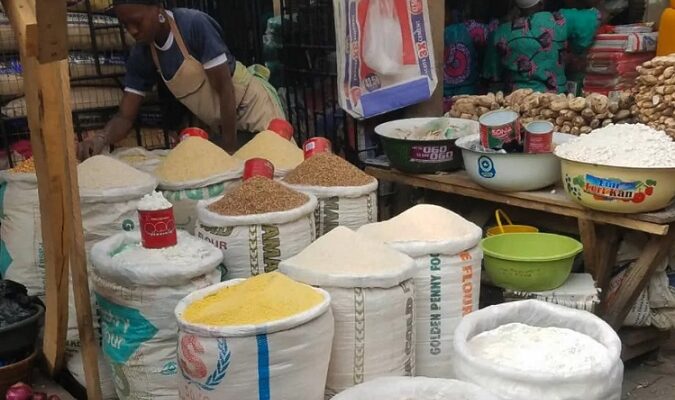Kogi, an agrarian state, has retained its unenviable first position as the most expensive state in Nigeria.
According to National Bureau of Statistics (NBS), Kogi had the highest food inflation in January 2024 with prices of food rising by 44.2 per cent.
Kogi, which is in proximity to Benue, Nigeria’s leading food producer and itself a producer of rice, cassava, cashews, and sesame seeds among others, in January 2024, posted the highest food inflation of 44.2 per cent.
Following Kogi in the surge in food prices is Kwara at 40.9 per cent, and Rivers at 40.1 per cent, while Bauchi at 28.83 per cent, Adamawa at 29.8 per cent and Kano at 30.08 per cent recorded the slowest.
The lowest states are Borno, Kano, Nassarawa, Plateau and Bauchi.
In its December Consumer Price Index (CPI) report, NBS disclosed that the all-Items inflation rate is the highest in Kogi state. Kogi ranked first among the most expensive states in Nigeria.
Throughout 2020, 2021 and 2022, Kogi hardly missed being first in NBS report among states with highest inflation.
Worried by the trend, a civil society organization, Initiative for Grassroot Advancement (INGRA) called on Kogi state government to rise up to the occasion and stem the tide of unchecked inflation of food prices in the state.
In a statement issued by the Executive Director, Hamza Aliyu, INGRA urged Kogi state government to declare a state of emergency on the agriculture sector and free up human and financial resources so as to avoid the looming hunger.
INGRA raised alarm that Kogi state is staring severe food shortages and possible food insecurity if the government continues in the same way it has always done, with poor funding of the agriculture sector and poor attitude to small scale farmers.
The statement noted that the negative attitude of Kogi state government in not releasing budgeted funds is crippling activities of the State Ministry of Agriculture.
“For the umpteenth time since 2020, Kogi state has top the States with the highest food inflation in Nigeria, according to the National Bureau of Statistics (NBS) has shown.
“The report revealed that in July 2021, food inflation was highest in Kogi at 28.51 per cent, Enugu at 24.57 percent, and Lagos at 24.04 per cent. This is in contrast to Sokoto, Akwa Ibom and Imo which recorded price deflation or negative inflation (general decrease in the general price level of food or a negative food inflation rate) within the period. This trend has been consistent for close to a year.
“The NBS report however states that the rise in food prices was slower in month-on-month.
“It is no gain saying that Kogi state is blessed with large arable land, vast water bodies and a large population of small scale subsistence farmers. It is unconceivable that food prices should be the highest in the Nation.
“This rise in the food index, according to the Bureau, was caused by increases in prices of bread and cereals, potatoes, yam and other tubers, milk, cheese and eggs, fish, soft drinks, vegetables, oils and fats and meat. This ought to be a baseline for our State Ministry of Agriculture to look at these food items.
“Kogi state has comparable advantage when it comes to food items like fish, yams and tubers, meat, rice and beans. Many of our communities produce these items in large quantities. The question is why are the prices not cheaper in Kogi than in Sokoto and Akwa Ibom or Imo, who do not produce these foods?
“The Kogi state Government has over time failed to look into the issues militating the large scale production of food for local consumption and export. Billions of Naira has been spent on various Agricultural intervention both by the state and by Multilateral organizations, with very little results to show for it.
“The colossal expenditure on the Ejiba Rice Mills was premised on the fact that the State would reap from the bountiful supply of paddy rice and thus produce Rice at affordable cost to citizens and have enough for export. The lamentable fact today is that the Mill is lying fallow and has not brought any returns on investment since it was commissioned.
“Support for small scale farmers especially women farmers, who form the bulk of producers of food in the state, have been at best minimal with no viable strategy for increasing their output,” the statement said.
NBS said the rise in food inflation was caused by increases in prices of bread and cereals, potatoes, yam and other tubers, oil and fat, fish, meat, fruit, coffee, tea, and cocoa.
While inflation came in at 29.90 per cent in the month under review, the food inflation rate in January 2024 was 35.41 per cent on a year-on-year basis, which was 11.1 per cent higher than the 24.32 per cent recorded in January 2023.
On a month-on-month basis, the food inflation rate in January 2024 was 3.21 per cent, this was 0.49 per cent higher compared to the rate recorded in December 2023 (2.72 per cent).
The rise in the food inflation on a month-on-month basis was caused by a rise in the rate of increase in the average prices of potatoes, yam and other tubers, bread and cereals, fish, meat, tobacco, and vegetable.
The average annual rate of food inflation for the twelve months ending January 2024 over the previous twelve-month average was 28.91 per cent, which was a 7.38 per cent point increase from the average annual rate of change recorded in January 2023(21.53 per cent).




